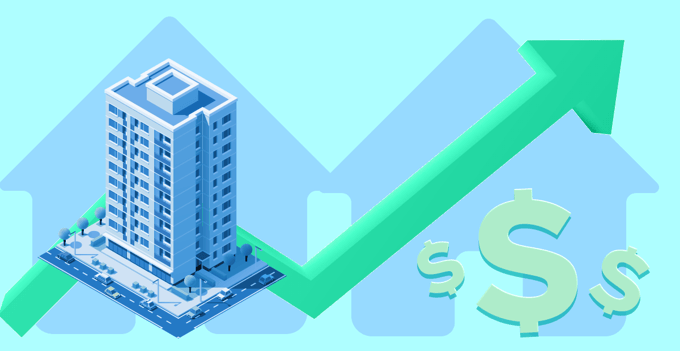Singapore home mortgage rates have seen a worrying rise throughout 2022. This is, of course, due to the interest rate hikes implemented by the U.S. Federal Reserve as it fights to bring runaway inflation under control.
Going into 2023, the foremost question on the minds of home seekers is whether mortgage rates will continue to go up. Or have we reached the peak and will soon see a trend reversal?
Unfortunately, the current forecast calls for more pain ahead; home mortgage rates are likely to rise – or at least remain elevated – for the better part of the year, which means those looking to take on a home mortgage will have some pretty tough decisions to make.
U.S. Fed expected to increase rates twice more
The most convincing reason to be pessimistic is that the U.S. Fed is widely expected to increase interest rates twice more in 2023, before pausing on any further increases to assess the impact of their decisions.
Analysts believe this would bring the U.S. Fed interest rate to the 4.5% to 4.75% range, up from the current 4.25% rate.
This is not guaranteed by any means – if inflation proves resistant to the planned hikes, the Fed may have no choice but to raise rates farther.
This could tip the already-teetering American economy over into a recession – a bitter pill that must be swallowed in an attempt to stave off even more dire circumstances down the line.
Singapore mortgage rates are influenced by U.S. Fed interest rates
Why this is important is because home mortgage rates in Singapore are strongly influenced by Fed interest rates. As the latter goes up, the former tends to follow suit.
This is due to the way home mortgage interest rates are calculated. Mortgages in Singapore are pegged to a metric known as the Singapore Overnight Rate Average (SORA). (Well, there’s also the SIBOR and the FDR, but these two are being phased out, so we only need to pay attention to SORA going forward).
Historically, SORA has demonstrated close correlation with the U.S. Fed rate, moving in tandem up or down. But SORA only tracks interest rate movements within Singapore, so why would it be affected by U.S. Fed interest rates?
Well, this is because our economy (perhaps more so than some others) cannot help but be affected by changes in the U.S. Fed, rate due to the Dollar’s dominant position as the world’s reserve currency.
In any case, the key takeaway here is that as the U.S. Fed raises interest rates, home mortgages in Singapore tend to get more expensive.
The question is, how much more expensive are home loans going to get?
Have we reached the peak?
Recall that the U.S. Fed interest rate is expected to hit as high as 4.75% this year. This is in line with market predictions of the Fed rate hitting 5.1%.
In other words, this development was already anticipated, which is why some market watchers don’t expect home mortgage rates to be much more severely impacted – well more than what has already transpired.
If the Fed applies the brakes at 4.75%, this would mean the “ceiling” for SORA would remain at the 3.5%-mark, instead of going up any further. This is because the SORA has historically maintained a gap.
During the 2008 financial crisis, when the U.S. Fed rate exceeded 5%, SORA stayed well under 4%. This behaviour was repeated between 2017 and 2020.
If history is anything to go by, there is reason to believe that any coming hikes in home mortgage rates are expected to be mild.
Also, let’s not forget that the Monetary Authority of Singapore has been keeping a close eye on the situation – not least because home mortgage rates also act as a driver of Singapore’s inflation rate – and there’s every confidence that the Authority will intervene as necessary.
Could things get worse before they get better?
Yes, absolutely.
You see, the U.S. Fed rate hikes are a direct response to high inflation, which is being driven by unprecedented – and unpredictable – global events.
The Russian-Ukraine war is showing no signs of concluding anytime soon, China is struggling with the fallout of its abrupt reversal of its zero-Covid policy, tech giants around the world are shedding massive amounts of headcount, and there is still a fair degree of uncertainty over whether we’ve truly beaten COVID-19.
And then, there are those such as Micheal Burry who believes that the U.S. Fed will get it wrong, ease off too soon, and then have to reverse course and implement yet more rate hikes.
What’s a homeowner to do?
Unfortunately, “uncertainty” is the name of the game, and is likely to remain so for the next 12 to 18 months (and even then, don’t quote us).
As such, homeowners need to take a good hard look at their budgets, timeline and financial status before committing to a home mortgage at the current moment.
Importantly, homeowners should keep up to date on home mortgage packages offered by lenders so as to get a sense of where rates are heading.
Given the circumstances, it’s not enough just to aim for a mortgage that is within your means. Go one step further and over-pay your monthly mortgage, by a few hundred dollars or more, if possible.
Doing this will allow you to build up a cash buffer that you can use to adapt to increases in mortgage payments down the road.
It may also be helpful to avoid loan packages with long lock-in periods, so as to preserve the option to refinance to another mortgage – if a good deal arises.
Lastly, be willing to explore alternative ways of having your own home, including renting or co-sharing a flat with family members to better manage mortgage payments.
Read these next:
Home Loans In Singapore (2023): Best Mortgage Rates To Consider
How Will Rising Housing Loan Interest Rates in Singapore Impact You?
Fixed vs Floating Home Loan Rates: Which One Is Suitable For You?
The When And How Of Refinancing Your Home Loan
Similar articles
How the US Fed Rate Hikes Will Affect You in 2022
Rising Interest Rates And The Effect On Mortgage Debt In Singapore
2017 Rate Hikes Will Make Your Flat More Expensive
Should You Still Choose A Bank Home Loan Over An HDB Loan?
Why is the 5% Pay Increase for Singaporean Managers Important?
Should You Pay Off Your Mortgage Early in Singapore
Mortgage Rates in Singapore are on the Rise. Here’s How Homeowners Can Save
The S&P 500 is at its worst in over 80 years, here’s how it will affect you










